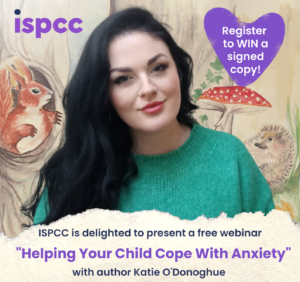
Finding out that your child is being bullied can strike fear in any parent's heart.
Your immediate reaction is to try to fix things for your child so that the problem goes away.
That can take many forms – you might march into school and demand a meeting with the principal, your child’s tormentor(s) and their parents to sort it out once and for all.
You may want to help your child forget about it and focus on something else instead.
Or you might compare their situation to someone else and describe how they resolved their problem.
These are all understandable and in line with any parental urge to protect a child. However, despite your good intentions, this line of thinking may not be the best course of action.
Here are 5 things you should NOT say to a child who comes to you for help:
“Give them a taste of their own medicine”
It’s understandable to want your child to stick up for themselves when confronted by a bully but it’s imperative that you teach them to do it by being assertive rather than aggressive.
By using this phrase, you’re encouraging them to solve their problems with force and revenge rather than finding a peaceful solution or better yet, getting to the bottom of why the bully is picking on them.
Perhaps it was a misunderstanding, perhaps the bully is going through a tough time at home or perhaps it’s totally random and your child happened to be the unlucky one who got picked on.
Whatever the reason, you won’t learn anything if you simply instruct your child to retaliate in kind.
“What’s the big deal?”
It may not seem like a big deal to you. In fact, the issue might seem ridiculously trivial or even comical to you. However, everything is relative and the fact is that it’s a big deal to your child at this moment in time.
Minimising their distress or worse, dismissing it, may make them feel small, foolish or worse, ashamed.
Consequently, as well as affecting their self-esteem, this could also result in them not coming to you with their problems in future for fear of a similar response.
“Don’t be so sensitive!”
While you might think this is a good way to encourage your child to have a thick skin, it’s not. Your intentions may be pure but saying this to your child isn’t going to make them any less sensitive.
Instead, listen to what they have to say about the matter, let them know that you understand where they’re coming from and that it’s okay to feel what they’re feeling.
If you genuinely think they are being over-sensitive to what has happened, sit them down and explain the situation from one or two other perspectives so they can see that what has been said or done isn’t necessarily about them and they don’t need to take it personally.
“I was called every name under the sun and it didn’t do me any harm!”
As adults, it’s not uncommon to have a short memory about how we felt in social situations during our youth.
And while you might think this statement will buck up your child’s resilience and laugh off whatever’s bothering them, the truth is that your child is not the same as you are.
Perhaps everything that happened to you rolled off you like water off a duck’s back but that doesn’t mean that it will for your child. Applying a ‘one size fits all’ approach to their problems could make them feel like you’re not really listening to them or that you don’t think it’s important.
“Here’s what you should do…”
Unless they specifically ask you for advice, don’t immediately jump in with a solution to your child’s problems.
In many cases, all they want is someone to listen to them, to feel heard and to know that they’re not alone. By simply getting things off their chest, it will help them feel calmer about the situation. The last thing you should do is stress them out again by demanding they resolve things straight away.
Chances are, they will ask for your advice at some point later on and be more inclined to listen to you because it’s what they want too.
You can read about more ways to support your child if they are experiencing bullying or social exclusion on the following links:


